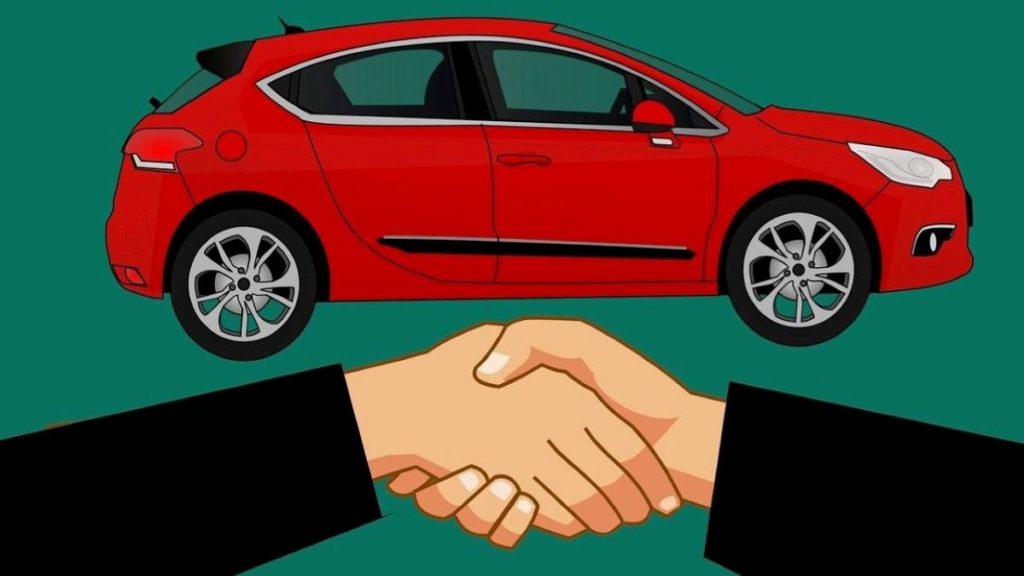Featured image by DuxX
A car dealership can be a lucrative business. Even though public transportation offers a safe and reliable way to get from Point A to Point B, many Americans prefer, if not need, their cars. Further, with the typical vehicle lasting for only eight years or approximately 150,000 miles, the chances are that traffic to your dealership will be relatively steady.
Plan Your Business
In this article we provide insight into the elements of a business plan for a successful car dealership. Taking the appropriate amount of time along each step of the way will ensure that you understand the start-up and ongoing expenses related to a car dealership, how to identify your target market, how much you can expect to make, and more.
RELATED ARTICLE: HOW TO START A SUCCESSFUL AUTO DEALERSHIP
Before you begin documenting your business plan, it is important to know that this document will be about far more than some chicken scratches on a napkin. Your business plan needs to outline how your car dealership is going to operate and the steps you are going to take to make it succeed. Further, your business plan should be dynamic, meaning that you will add to it as your business grows.
The core components of a business plan include:
- An executive summary
- An overview of your car dealership business
- Information on the vehicles that you plan to sell at your dealership
- Your marketing and advertising plan
- An outline of the milestones that you plan to accomplish with your business
- Information on the roles and responsibilities that you will have within your organization, and who will fill the leadership roles
- Your car dealership’s financial plan
To help prepare you to document your business plan, we have provided some helpful information below. These insights will help you think through critical components of your business.
What Are the Costs Involved in Operating a Car Dealership?
Though car dealerships can be lucrative, starting one isn’t always the easiest thing to do. To start, you will need to obtain the proper licensing and a surety bond. Auto dealers must file a surety bond with the appropriate department or agency in their state before they can get an auto dealer license. This surety bond protects consumers from fraud and is the license that allows car dealers to sell vehicles within that state.
However, purchasing a bond can be a confusing process. The type of bond you will need to obtain will vary depending on whether your dealership will sell new vehicles, used vehicles, motorcycles, recreational vehicles, or some other type of vehicle. The bond’s cost will vary as well based on your financial credentials, your credit score, and whether or not you wish to finance the premium and the amount of the bond itself.
On average, it will cost between $100,000 to $200,000 to start a car dealership.
Who Are the People in Your Target Market?
A target market comprises the people who will be interested in the products or services you have to sell. Thus, for a car dealership, the target market will include those interested in purchasing a car, as well as precisely the type of car you sell.
The best customers will have good credit, though this can vary depending on the types of cars you sell. Some dealerships focus on luxury cars. In those cases, a very good to an excellent credit score will be necessary (unless the customer is purchasing with cash). Other dealerships might focus on low-cost used cars. In that case, sometimes, there are different requirements related to the customer’s credit score.
Before you open a car dealership, it is important to determine the types of customers that you want to target. Moreover, you don’t want to open a dealership in an area where those customers can’t be found.
Form a Legal Entity
Before you can conduct any business (and likely before you can purchase or lease the space for your car dealership), you will need to form your legal entity. This process consists of the following key steps:
- Select the name of your LLC (limited liability company). To do this, start by searching the local Secretary of State website to see if your desired car dealership name is available.
- Apply for a Federal Employer Identification Number (FEIN) with the Internal Revenue Service (IRS).
- Complete the articles of organization and pay any applicable registration fees.
- Develop your LLC operating agreement.
You will also need to complete any remaining steps as required by your local secretary of state. In many cases, consulting with a business attorney can help reduce business risk and ensure you do not miss any appropriate steps.
Register Your Car Dealership for Taxes
If you have obtained your FEIN through the IRS, then you are already covered for this step. The FEIN, sometimes referred to as the EIN, works much like a Social Security number. This number is what enables the IRS to keep track of your car dealership’s tax reporting. Further, you will need an EIN before you can lawfully hire any employees.
Set up the Accounting for Your Car Dealership
Unless you have a strong background in economics and accounting, then you may want to consider hiring a professional accountant or bookkeeper. This person will be responsible for recording the various expenses that your car dealership incurs, as well as the sources of income.
Keeping detailed and accurate records is crucial in any business. This helps prevent unlawful activity. Though you do not need to document all of the details about this information in your business plan, you should be sure to reference how and where you will maintain the accounting for your business.
Obtain the Necessary Permits and Licenses
You must obtain the necessary business permits and licenses. Failure to do so can lead to a shut-down of your business as well as hefty fines. Further, reopening a company that has been shut down due to improper licensure is not an easy task.
Be sure to document information about your company’s permits and licenses within your business plan.
Get Business Insurance
Business insurance is also necessary to ensure that your car dealership is operating both lawfully and safely. This type of insurance will protect the well-being of your company in the event of a loss.
RELATED ARTICLE: CRITICAL BUSINESS INSURANCE EVERY ENTREPRENEUR SHOULD HAVE
There are many types of insurance policies, and all serve different purposes. In most cases, it will be best to start with general liability insurance. Small businesses commonly use this.
If the car dealership needs additional employees beyond a sole proprietor, then workers’ compensation insurance will also be necessary. Workers’ compensation insurance protects employers (the car dealership) from litigation related to workplace accidents. Further, it can provide compensation for employees who are injured on the job.
Will Your Dealership Buy Damaged Cars?
Though it is not a start-up cost, nor is it an insurance expense, you need to identify if your car dealership will purchase cars that have been damaged. Further, customers will often trade in poorly functioning cars. This will entail a business expense to the car dealership. Those vehicles will need to be fixed before you can sell them to another customer. In other cases, you might even need to sell the parts for scrap metal.
If your car dealership will be in the business of purchasing damaged or nonfunctional vehicles, you can add this segment to your target audience. Further, a strong brand can help your business differentiate from others, and make what you have to offer more lucrative.
Market and Promote Your Car Dealership
Attracting new customers can be a challenge, especially in the beginning. In some cases, a tent sale can help attract in new customers, especially when you advertise it in the local newspaper and online.
However, this introduces the concept of the website. Any business, big or small, can benefit from a business website. The website adds credibility to the business. Further, you can arrange to create content on the company’s website, such as in a blog. Then you can promote the same content on social media to help create awareness of the business.
The benefits of a website for your car dealership include:
- Attracting new customers and making more money for the business
- Adding instant credibility to the business
- Staying in control of your brand
Websites are relatively inexpensive to build and maintain. In fact, freelancers can help build a website at a low cost. Plus, your website can save you time, especially when you maintain an FAQ (frequently asked questions) page. This page can answer many customers’ basic questions.
Be sure to outline the key elements of your marketing and advertising plan in your business plan.

Image by mohamed Hassan from Pixabay
Keep Customers Coming Back
The best way to keep customers coming back is to ensure that they have a positive experience with every interaction. An honest, transparent, and responsive car dealership, by nature, will be sure to generate positive word-of-mouth advertising, which is essential. A happy customer will provide some of the best advertising, and it is often worth far more than what money can buy.
Quite simply, car dealerships are driven by relationships. Referrals from past customers will go a long way. Also, special incentives can motivate repeat customers. Consider offering deals on service or a value-add (such as free car washes for a year or free floor mats). Even providing a safe play area for children to play in while parents are car shopping can be a value add.
Conclusion
As with any new business, it is crucial to do your homework before starting out. Proper research will ensure that a new car dealership is set up lawfully and is well-equipped to offer excellent service to customers. Further, with proper advertising and marketing, and excellent customer service, a car dealership can be a highly profitable and rewarding business.
Finally, businesses of all types and sizes can benefit from a business plan. Not only is this documentation important to help you get started, but it can help you manage your business for years to come.
